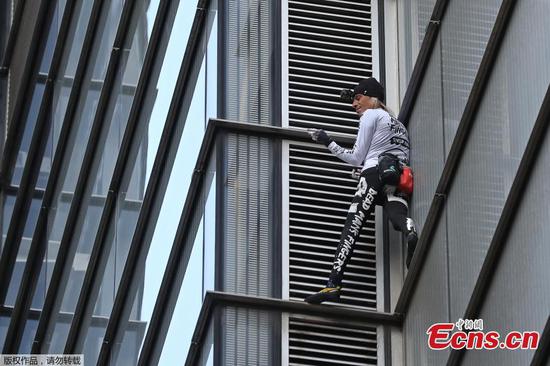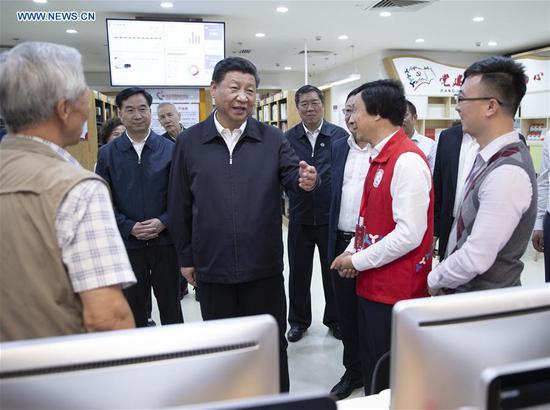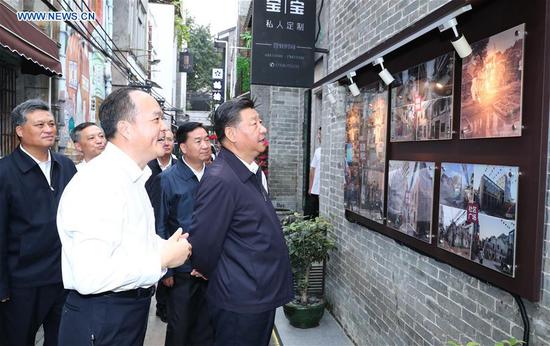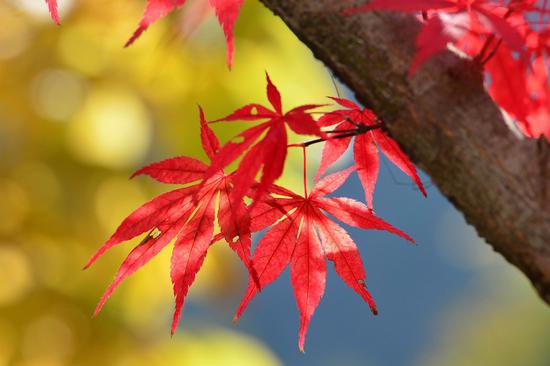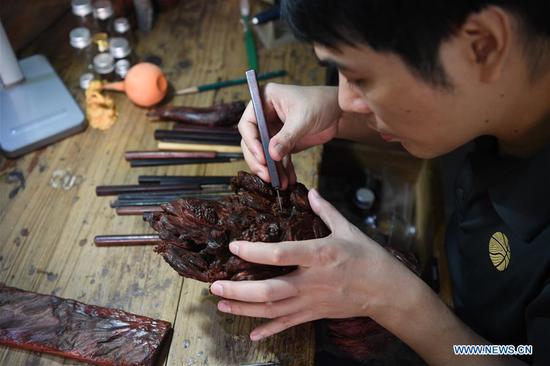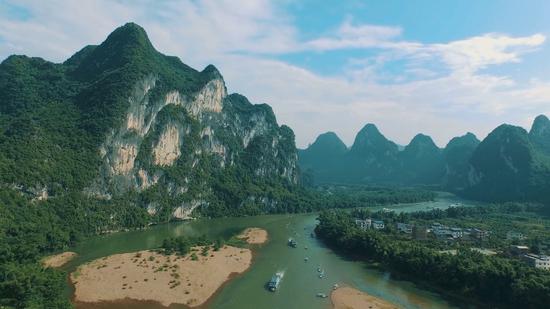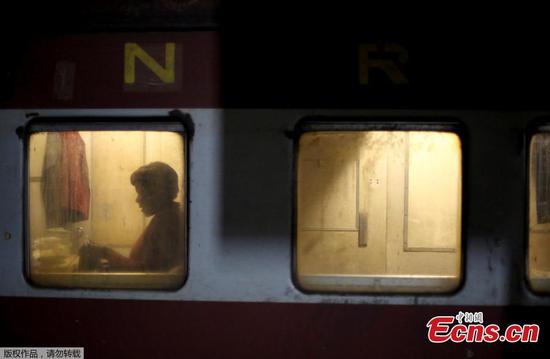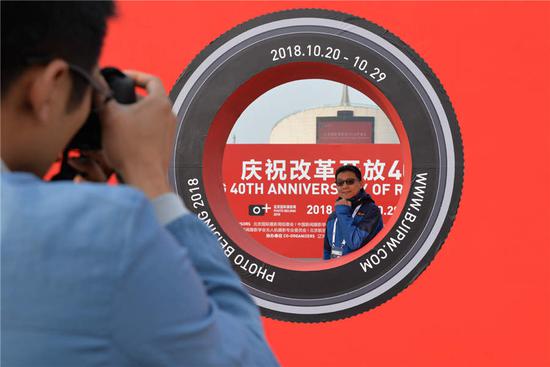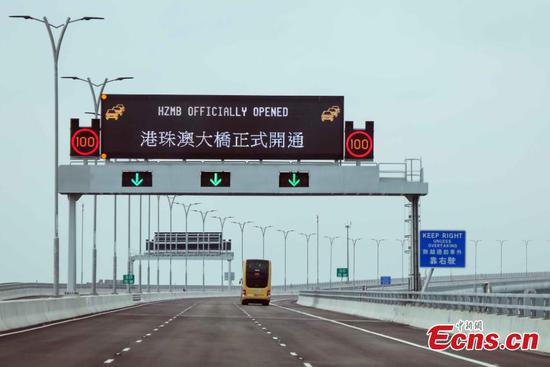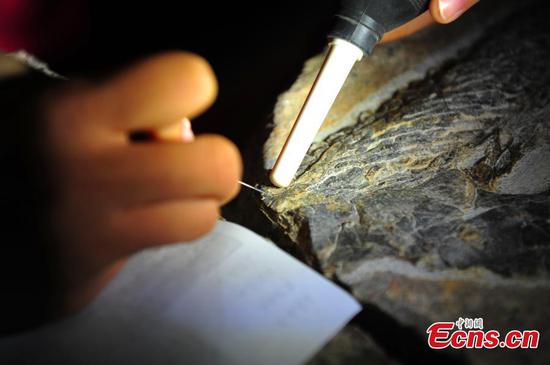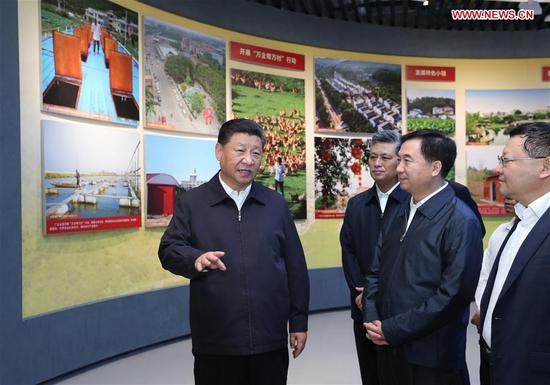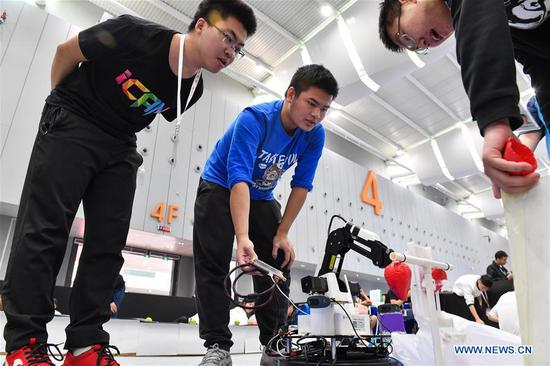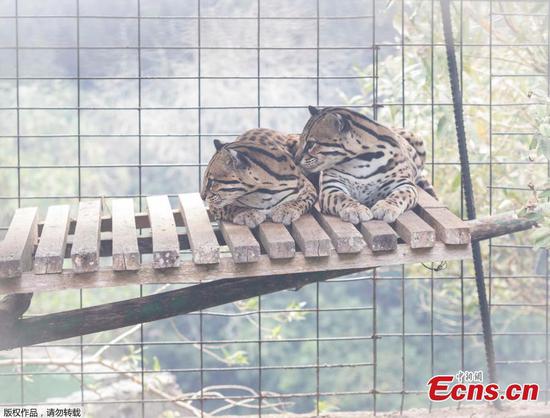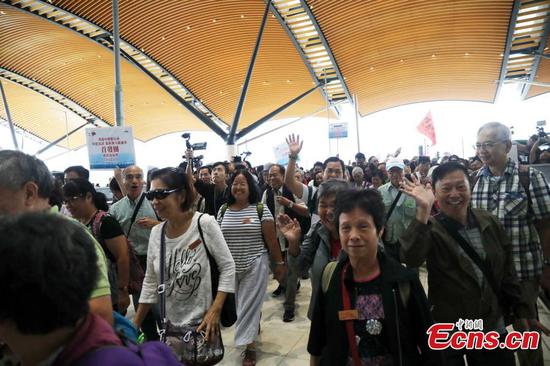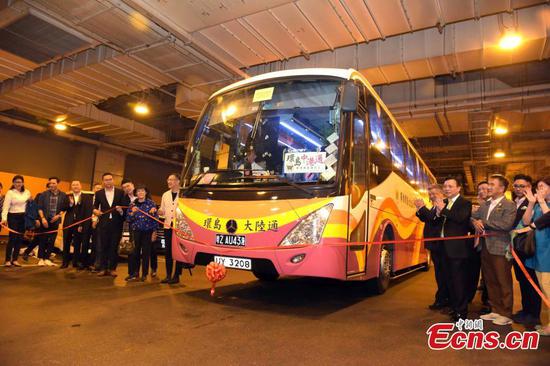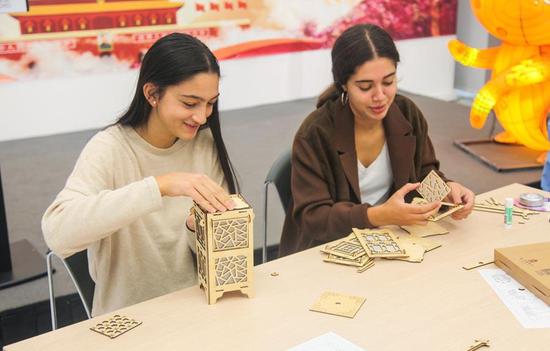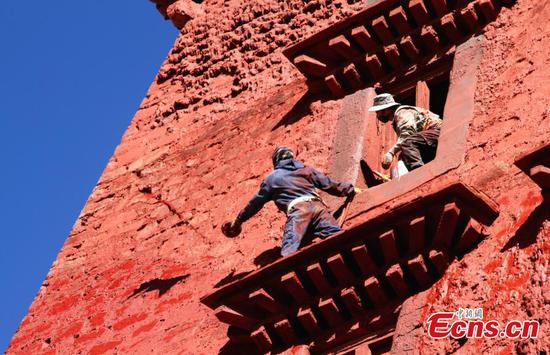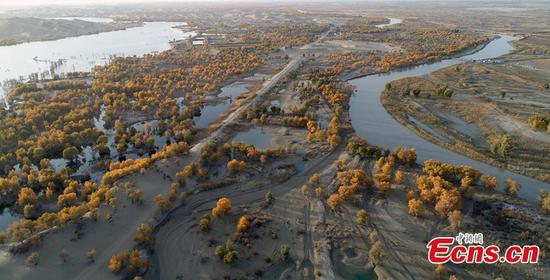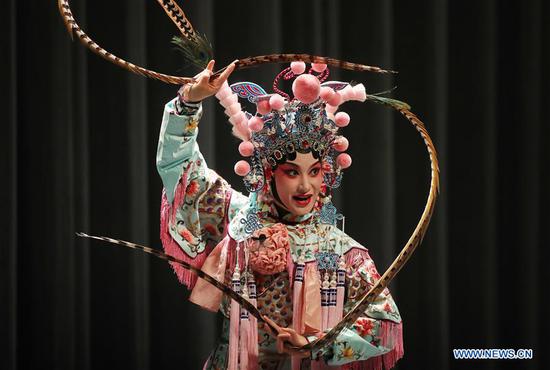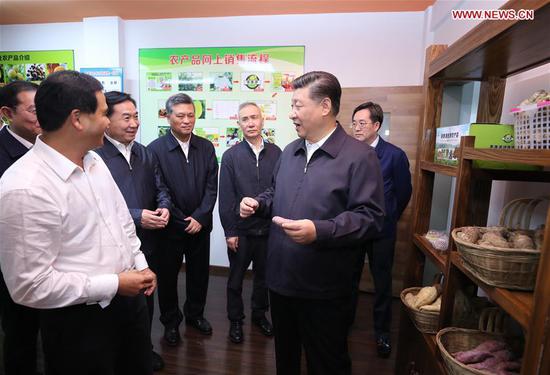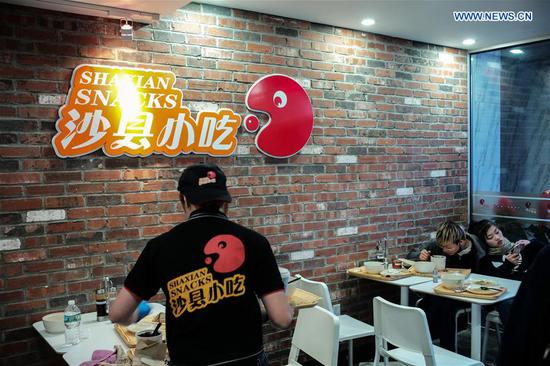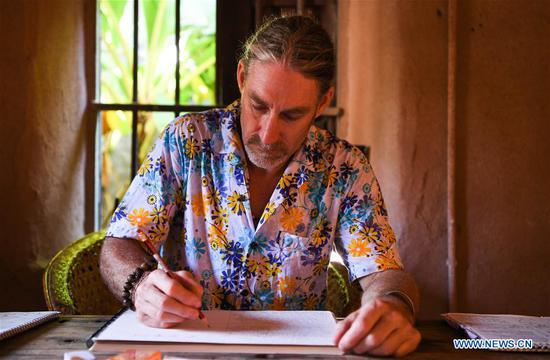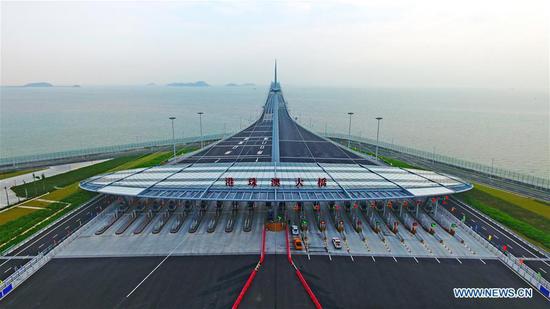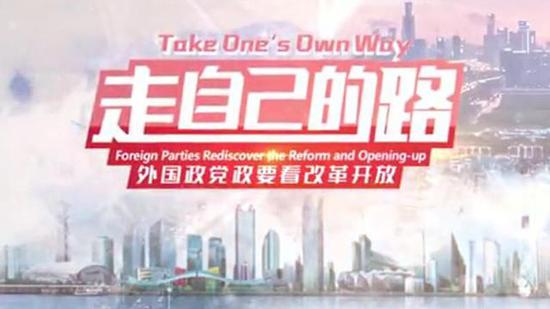Demanding work
Hu also used videos to encourage villagers to take part in his work. Every night, he put up a screen in front of the village's ancestral temple to project a short film he made to record people's daily lives, from farming in the fields to cooking at home.
Everyone was intrigued and asked Hu to play the video repeatedly. Afterward, they often danced and sang folk songs together.
"What I did can't offer financial rewards for them, but it made them proud of their lives and their village," Hu said.
He said artists who create works in villages should first respect the locals, as opposed to intervening in their lives and forcing them to accept artistic ideas.
"We should learn to talk to them and respect their lives and history," he said.
Sun Xu, organizer of the art competition in Lishui district with Sui, said persuading villagers to accept an artwork is very demanding.
For years Sun has looked for ways in which art can play a role in rural construction. In June, he flew to Japan to visit the Echigo-Tsumari Art Triennial to look at how the model for this event could be applied to the program in Lishui.
He learned that one local had started to farm his field again after seeing that figures placed there by an artist had attracted many visitors. Earlier, he had repeatedly refused the artist permission to erect the figures.
Now the farmer views working in his field as a kind of performance on a natural stage because he has realized the beauty of such work.
Sun said: "I think that art festivals in rural areas are a kind of exploration of the relationship between humans and earth. It's a method to revitalize the earth."
He added that it had taken two decades for the Japanese festival to be a success, while China's exploration of this type of rural revival through art is only just beginning and needs time and artists' persistence.
"I hope our artists can be stubborn about it," he added.










